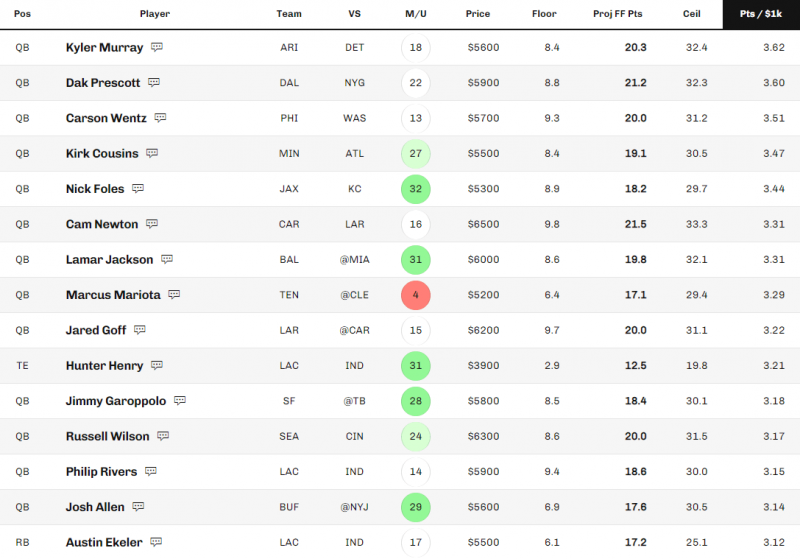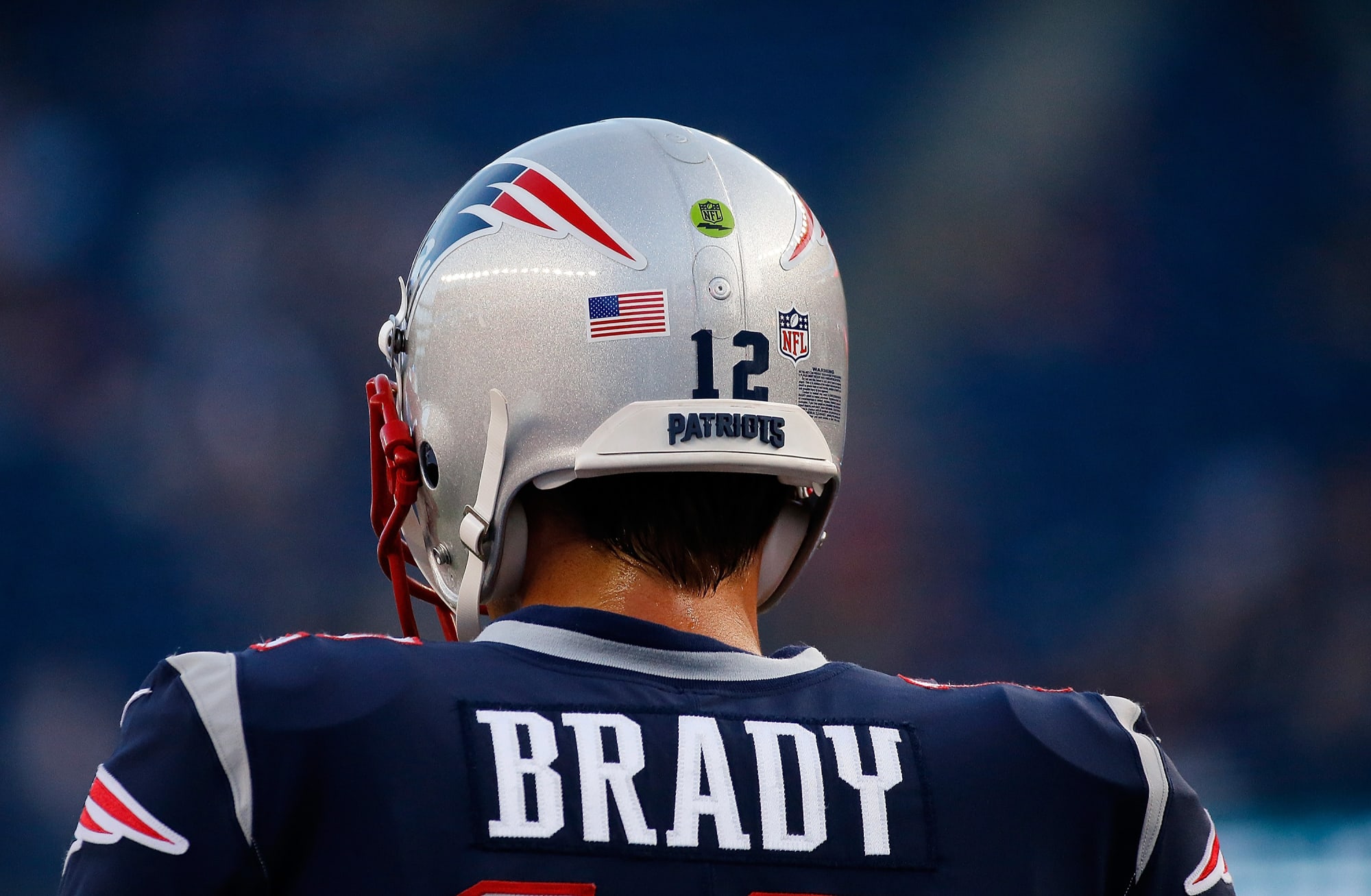Dfs Value Calculator
How to Actually Find Value in Daily Fantasy Basketball is a course by RotoAcademy founder Jonathan Bales that focuses on the true meaning of value in DFS, and specifically daily fantasy basketball. Basketball is a very predictive sport — knowing which stats make it predictive is a nice step, but also knowing how those are priced into player. Free calculator to find the future value and display a growth chart of a present amount with periodic deposits, with the option to choose payments made at either the beginning or the end of each compounding period. Also explore hundreds of other calculators addressing finance, math, fitness, health, and many more.
- This topic has 7 replies, 4 voices, and was last updated 4 years, 11 months ago by .

While the two legions of fake doctors do battle on Twitter, I was hoping to discuss something in a smaller DFS forum that I don’t know if I am going down the wrong track or not.
I do all my own work – scraping, models, etc – don’t get picks from Fantasy Labs/RotoQL, et. al. and for the first 3 DFS years it worked fine. However, I gave almost all of my earnings back in 2015 NFL due to some pretty identifiable misses and terrible under/over weighting based on what I thought ownership percentages would be (0% Freeman those first two weeks, too little & too much Hopkins opposite weeks, no Brees/Eli the one week, etc.). While I feel like I’ve corrected some of those issues, the next logical step is to improve my EV calculations and my asset allocation for 2016.
Now, I could be wrong since I do all my own work/no team, but it seems most DFS tout sites like Labs will base their EV calcs just on the player’s point projection vs cost. It would seem to me the next evolution of the DFS EV calc would be to incorporate proper asset allocation based on risk assessment and that requires an ownership projection model. Ownership projections, I believe, would give you the final piece in an EV calculation similar to Survivor pools and the EV calc you see on sites like SurvivorGrid.
My question is – I don’t expect anyone to disclose their secret sauce, but am I on the right track here for evolving a properly diversified weekly NFL DFS portfolio? Is this overkill? Is there anything sport specific that should change my conceptual ideas on the matter?
Good luck with the forums.
PS – You need to rename / redefine your forums, all 5 seem like some general subforum. Fun names, mostly meaningless though.
PSS – RIP Narm.I think that projecting ownership is just as important as projecting the potential statistical outcome for a given player on a given day, and becomes more so as the player pool increases. I would agree, most if not all value calculations (ours included) are a Point Projection over Cost analysis.
To find the true value of a player, it’s a logical step to include ownership projections, but how to arrive at these is a question of debate. First and foremost, as I’m sure you’ve found, finding concrete ownership data for all players in a given tournament is next to impossible without parsing the data yourself. Further, parsing that data requires a decent to above average excel skill set along with a decent to above average computer. DraftKings certainly doesn’t do any favors to those looking to investigate if any trends exist for Week to Week ownership, which makes it a pain to determine what factors might drive said ownership.
We’ve found that to determine ownership for a specific GPP, we have to download the entire results the next day. From there you have to clean up the data so that you can sort and eventually determine what % of lineups own each player. Slate wide numbers are ?impossible? to determine, as in order to get the results CSV you have to have first entered the tournament. Even if you could get all results, the coding alone is enough to keep all but the elite away from accessing this info.
To answer your question, you’re on the right track.
To further it, I would surmise that the same trends and ideas which influence sports betting decisions also drive the players which end up in an average lineup on a given day.
Has this player seen recent success?
Is their team an overwhelming favorite?
Does “Vegas Say” that the game will be high scoring?
What do the pundits and talking heads say?
Which players are being trumpeted by ESPN?
Has this player moved from a reserve to a starting role? Has this move been recent (on game day) or within the last week, ie, are contest entrants aware of the switch?Obviously this just scratches the surface, but I do hypothesize that were you to go back through ownership levels of the past year, regardless of sport/season, you could easily line them up with the same trends that influence public betting money.
– Larry
*Thanks for the forum name tip*
I definitely agree with your overall point, that you need to try to predict ownership and thus base your ownership and allocations based on what the field is projected to have. I have yet to actually model the projected ownership percentages but I do it when I enter my lineups. It’s mostly based on instinct at this point which makes it impossible to quantify my overall edge in each contest.
The trickiest situations are when you project a person to have a high point total, a high value, and a high projected ownership. Essentially you think he’s going to be really good but everyone is going to have him (e.g. Westbrook when Durant was out last year). In those instances, I find it tough to fade completely even in GPP’s because I trust the projections so much so I often look to differentiate my lineups in other ways.
I think any serious DFS player has considered ownership in relation to valuation. I have started several models to project ownership….several failed attempts. Which makes the “rouge” FD employee even more infuriating. I offer the following considerations:
The Efficienct Market Hypothesis(EMH) states valuations in a market are always correct as all known information is baked into the price of the asset. Of course this theory can hold true as the term market indicates that pricing is dynamic and of course determined by supply and demand. DFS pricing offers a near inverse situation. Pricing is static and salary algorithms are simply linear performance models that do not consider all possible pricing factors. In this environment demand is totally forgotten and supply is infinite as theoretically ownership of a given asset could be 100%. Which is a long way of saying the pricing algos are highly simplistic and sharp money can leverage variations. The 1st step in leveraging the prices is to understand implied value in relation to a given model’s EV. The 2nd way to leverage static pricing is to understand what other factors should have been considered in the assets valuation. For example a hitter got moved recently to the 2 hole or an NBA player has been playing with a bad wrist. Both situations will be missed in near term pricing and mostly undetectable in a model’s EV and valuation calculations. The 3rd is to monitor on-going news and make adjustments accordingly as late as possible till lock.
To answer the initial post, it is impossible to be successful at DFS without a sound understanding of game theory. 2 years ago making your own numbers and having an idea of implied valuations was all that was required to be +EV. Today with sites like DFSDoctors, quality numbers are available readily to the public, as such game theory, lineup construction and being able to leverage static pricing are the new keys to being truly +EV.
Lastly, YES simplistic point/cost valuation models are not as holistic as they possibly could be. They still, however, hold great value in beginning to find the +EV players in comparison to implied values.
- This reply was modified 4 years, 11 months ago by .
“1) With the prevalence of sites like yours, do you feel like your quantifiable edge has decreased or have you been able to leverage your other skills (game theory, lineup construction, etc.) to maintain or even increase your edge? From a theorycrafting perspective, the reason why DFS always remained nothing more than a low hanging fruit / learning exercise for me (in addition to being an old man who unless I automate real-time breaking news consumption I have no desire to put in the requisite work for point #3 that you raised) is because with static pricing and the availability of ever increasing accurate sites like yours, one would think the edge diminishes. Throw in the almost to double to sports wagering vig and I wonder how more serious DFS players such as yourself feel about your future quantifiable edge.”
I would question how quantifiable an Advantage Players’ edge ever was considering the pool sizes and vig. That is not to say it was not there it is just not as easily quantifiable as say monitoring CLV in sports betting markets. To cut to the chase, yes, advantage has diminished with the influx of quality information.
“2) Just to make sure I fully understand your EMH explanation, am I correct in concluding that the sharper the pricing gets on a site, the greater the edge for the DFS pro vs average user and, conversely, the softer the pricing is (cough DK), the more variance you will run across which actually decreases your edge. Are these statements correct?”
The theory would argue that if all pricing is perfect then there is no edge on the market. In other words simply solving for implied value would produce the optimal lineup. In which case the market is perfect and no one has an advantage. In this environment game theory as described above would yield the only edge and yes advantage players would benefit most. Softer pricing and for that matter softer lineup building rules leave a novice player a much better chance of lucking into success. Also with sites finding the weak salaries these variations are easily spotted.
- Posts
Expected Value Calculator Dfs
Ever wonder what score is needed for a player to reach daily fantasy value on FanDuel, DraftStreet, DraftKings, etc? This is the quickest way to find out.


Dfs Value Calculator Equation
1) Enter your site preference in the header cell at the top of the page, which currently has FanDuel entered.
2) Then type the player name in the cells beneath “Enter Player X Below”
Dfs Value Calculator
After that, the player’s value needed to reach value at two different value levels will show. The first uses a constant to weight each player’s value based on site scoring averages and salary structure. This number is typically a good indicator of value needed for head to head or 50/50 style games. The second number uses a straight multiplier, which can help you understand where value is for large field tournaments.